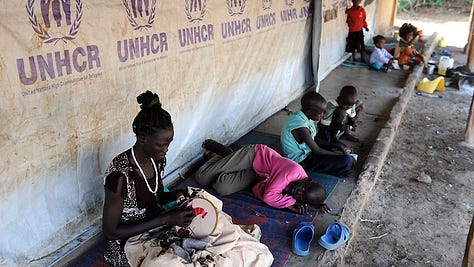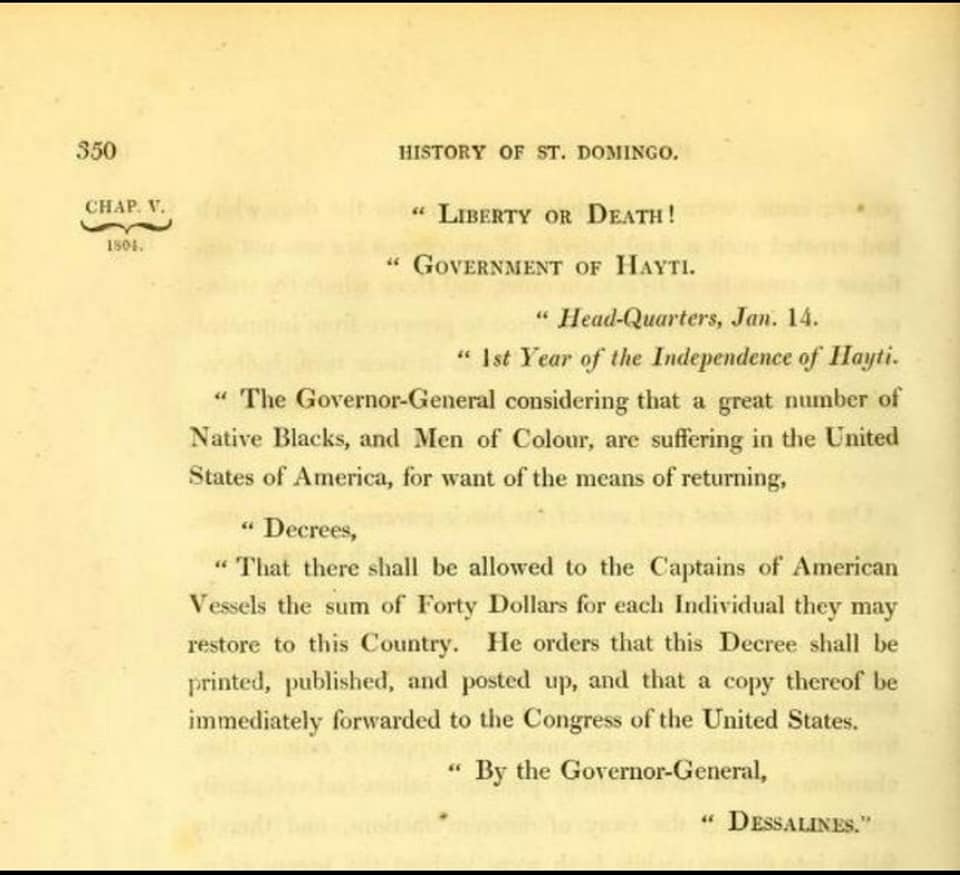Does slavery confer on Blacks the same immunity that the Holocaust confers on Jews?
And that being invaded confers on Ukrainians?
The conundrums abounded after October 7: that right-wing extremists who sing Nazi songs and make Hitler salutes should be staunch supporters of Israel; that a Jew who holds up a poster saying stop the genocide in Palestine should be arrested and need to ask “Should I say ‘encourage the genocide in Palestine’?” That it’s antisemitism to speak a word in support of the Palestinians being killed in Gaza, to describe Gaza as a concentration camp or a prison, to deny that Israel is God’s country and that the Jews are His chosen people, and therefore that they can live where they want and do as they wish; that the Holocaust was so awful that no Jew can ever be accused of doing wrong ever again; simply put: that it is antisemitic to criticise a Jew or the Jewish state of Israel.
Well, many Jews have themselves now spoken out against Israel—people like Norman Finkelstein, Ilan Pappé, Major Harrison Mann—and, slowly, these conundrums are being laid to rest. Some kind of equilibrium is being re-established that will allow a dispassionate enquiry into whether it is conceivable that a Jew, like a Gentile, or that Israel, like any other sovereign state, is capable of doing wrong.






A Black friend of mine in the US forwarded me the following extract of interesting titbits of information, which was passed to him by an erudite Haitian scholar with the request that he should forward it to his friends, of which I am one, especially the racist ones. I have no express clarification as to whether the document has been forwarded to me as a friend, or as a racist friend.
The document is a shortlist of things of which Haitians should be proud, I suspect, though I hesitate to put words in the other parties’ mouths. As requested in turn, I forward it to you, without any aspersions as to whether you are friends or racist friends. Here is the document:
Spreading terror throughout North America and Europe. Fourteen days after independence, the Haitian government issued a decree offering the equivalent of […]700 dollars for every Black man, woman or child American ship captains would bring to Haitian shores, instead of unload[ing] their cargo in the slave markets of the United States. These Blacks would be given Haitian citizenship instantly. Any enslaved Black, from anywhere in the world, would be granted citizenship upon setting foot on Haitian soil.
Joy Reid enunciates the help that Haitians provided to the United States with [their] participation in the Battle of Savannah, Ga. [i]n 1779, and in the purchase of the Louisiana Territory, and more recent contributions.
Haiti provided soldiers who fought for the independence of Mexico.
Haiti provided soldiers, weapons, ammunitions to Simon Bolivar leading to the independence of Venezuela, Colombia, Ecuador, Peru, and Bolivia, in return for the abolition of slavery in northern South America.
Haiti was the first country to recognize the independence of Argentina.
Haiti provided money and ammunition to the Greek insurgents fighting for the independence of Greece from the Ottoman Empire. A century later, Princess Marina visited Haiti to thank the Haitian people for that support.
The Republic of Haiti is seen as the cornerstone of Pan-Americanism, statues of President Alexandre Petion adorn squares in many capitals of Latin American countries. Haiti is seen as a founder of Pan-Africanism, and the vector for the Negritude movement.
Haiti was an original member of the League of Nations and the United Nations. [The writer’s] grandfather, Dantes Bellegarde, represented Haiti in both international bodies, and was a judge at the international court at The Hague, in the Netherlands.
At the instance of Haiti, the French language was made one of the two “working languages” at the U.N.
[...]
Oh yes! We have ostensibly the best rum in the world, often no longer allowed to compete because it was winning the top prize, and became oftentimes a member of the jury, Rhum Barbancourt.
This is an impressive list of achievements and milestones set down by a nation of which little is generally known in Europe. I could easily just leave it for your digestion and appreciation, like a good snifter of Barbancourt rum, and say nothing further. I was asked to forward it, and forwarded it I have.
However, that’s not the nature of my blog, so, with apologies to the author and the friend who sent me it, I should like to add the following comments, which, I am sure, in the eyes of some, will render me a racist. And, having endeavoured for nine months to extricate myself from the antisemitism conundrum with Israel, I now find myself edging into a racism conundrum with Haiti. Can I criticise Haiti, or challenge its achievements, and not be a racist?
The cobra effect
The cobra is a poisonous snake found in places like India, and it can kill. Cobras are a problem. So, the British authorities in India once supposedly placed a bounty on cobras: anyone who brought a cobra, alive or dead, to a collection point would receive a cash reward. That way, it was hoped, the population of cobras would be reduced.
However, the cobra population did not reduce. It increased, despite large numbers of cobras being handed in at collection points. The reason for this was that, with the lure of a financial reward for handing in a cobra, people started to breed them. The reward system had precisely the opposite effect to that which had been intended.
The fee that was offered by Haiti for Blacks delivered up to them to become citizens was conditional upon the persons in question being slaves. I have no knowledge as to whether individuals were enslaved for the precise purpose of taking advantage of the Haitian compensation scheme, but in any case the description contained in the decree by J. J. Dessalines (applying to Native Blacks and Men of Colour ... suffering in the United States of America) seems at odds with the analysis of the document by the writer, who implies that the persons concerned would be freshly enslaved individuals on their way to the US, although the distinction isn’t that important in terms of the net effect of freeing the slaves in return for the compensation.
But this is an arrangement between ships’ captains and the Republic of Haiti. I would need to make further enquiry into the degree of consent that was forthcoming from persons being delivered up to Haiti instead of, as the decree puts it, returning (presumably, to Africa). I have no knowledge as to how many such individuals were saved from slavery. I exercise no judgment over the scheme. But I have questions, which have no bearing on the scheme’s success or otherwise.
One of the most disgusting aspects of colonialism in my mind is the fact that slave owners were paid to desist in their revolting abuse of mankind. As an instrument of capitalism, colonialism adhered to one of the fundamental tenets of that type of economics: a capitalist is someone who arrogates to himself an asset that is either unowned or owned by another, exploits or removes the asset using the labour of enslaved or lowly paid workers, and, when both asset and labour have been exhausted, moves on to the next such project. The idea that an enslaved worker’s freedom should be purchased is anathema to the notion of justice that resides in the principle of the freedom of all men and women, of all races and creeds, as from the moment of their birth.
However, the practicality of the proposal here is appreciated. It is like paying a ransom to a hostage-taker. How would you feel if Middle Eastern countries offered to Israel to purchase the citizens of Palestine? To buy the Palestinian population and give them homes elsewhere? To reward Israel monetarily for its destruction of Gaza? To pay Israel to stop killing them?
Maybe we could purchase Ukrainians along the same lines, if the Russians advance to a critical point. Just like Haitians who might have wished to return to Africa, just like Gazans who might want to return to Palestine, the Ukrainian who would sooner return to Ukraine would be faced with the objection: not an option. Could we pay Russia not to bombard Kyiv?
There is more than an overtone of Schindler’s List to this. Schindler’s payments to the German command secured the freedom of his workers, but the ploy would have never worked if Germany had won the war. It is only because the Holocaust was coming to its end that it worked.
Let me tell you a story. Several years ago, I was contacted by a gay man from Uganda who was then living in Kakuma, which is in northwestern Kenya. He had fled Uganda because he feared for his life there: his parents wanted to murder him. Being murderers would heap less shame on their family than having a gay son did.
He wended his way into Kenya and to Kakuma, where he found a band of about 800 queers—LGBTQI+ persons. Homosexuality is no more legal in Kenya than in Uganda, but, at Kakuma, a refugee camp with over 250,000 inhabitants, he was at least under the care and protection of the United Nations High Commissioner for Refugees (UNHCR).
Life as a recognised gay man at Kakuma was extremely hard. He was subjected to discrimination on a daily basis, refused services and food by those who sold these things in the camp, and was brutalised by the Kenyan National Police. He became desperate to get out.
He applied for resettlement, and was interviewed by a UNHCR official. He was advised that resettlement, a programme that is organised by UNHCR and paid for by the member states of the United Nations, by which internees at Kakuma could find a new life in host third countries, would cost him 70,000 shillings. At the time, that was around 520 euros. He wrote to me to ask if I could give it to him.
I could have found the money from somewhere, but this was clearly a bribe for services that the UN was already paying for. UN officials were asking for bribes to do what they’re paid to do anyway. It’s the African way.
However, the situation of LGBTQI+ persons at Kakuma is untenable and has been since the camp was set up in the 1990s. The camp is accessible to the Kenyan police, who are responsible for law and order, and numerous other extraneous persons who come in without let or hindrance and act violently towards or extort members of the camp community, seemingly at will. It seemed to me that the UNHCR, at best, did nothing to prevent these incursions against those in its care and, at worst, engineered circumstances so as to facilitate such acts of aggression. Because a gay man wanting resettlement and being offered it for a bribe will be all the more desperate to raise the 70,000 shillings needed if he is in constant fear of his life.
Not paying him the 520 euros could mean his death.
Paying him 520 euros would secure his resettlement.
Resettlement is his right as a refugee in UNHCR’s care.
Paying for his removal from a situation that is life-threatening but that has been engineered to be so may well save this one man. But it could cost the life of the next one. Because it would show the corrupt official at Kakuma that their system of laissez-faire oppression by ruffian gangs and the police works. It’s a theory at least. At the very worst, it could even be that, with money at stake, certain parties are financially encouraged to make life difficult for gays at Kakuma.
When the guy contacted me, he was one of 800 gays and lesbians at Kakuma. It had a population of 250,000 at the time. In any population, it can reasonably be estimated that five to ten per cent are homosexual. That means that the actual population of homosexuals at Kakuma was not 800, but somewhere between 12,500 and 25,000. Yet only 800 identified themselves as such.
Paying for this guy’s resettlement would have done more than just help him out of a patch: it would have perpetuated a system of corruption and bribery, a system that could very well result in someone else’s death, if not his own. And it would have perpetuated a culture in which homosexuals are afraid to reveal their sexuality out of fear of having to pay a higher price for resettlement because of their orientation becoming more generally known, thus marking them as a target for oppression so as to extort money from them (not to forget: homosexuality is a crime in Kenya; for some, a very profitable one).
What would you have done? Pay the guy the money to secure his resettlement (he is now in Canada)? It is a little akin to satisfying the hunger of a wild animal by giving it food. It’s an act of generosity and kindness, but breaks down the animal’s sense of self-sufficiency and ultimately makes it dependent on raiding suburban rubbish bins. That which is kind in the moment fails to take account of the further consequences of that kindness.
Or would you refuse, on the consideration that feeding a system of corruption does not end it; it lets it flourish?
Schindler, Kakuma, Haiti, Gaza. They’re all the same, but different. The question is simply: which over-arching principle should be held to apply? Or do you apply a different one to each case? And, if you do, how do you decide which one applies to which case? Your intimacy with the facts? Your skin colour? Your religion? Your nationality? Or your moral backbone? I wish I knew.
Terra nullius
I find it interesting that, by dint of its slave population having overthrown their masters, and their masters having secured the demise of the indigenous population of the island of Hispaniola, the free Haitians can be viewed historically, post-independence, as having inherited a terra nullius.
In the US, the case was somewhat different: the dominant (white) population freed the slave population and has, since then, endeavoured to integrate both populations into a single population, at least ostensibly (while some agents have worked to retain Blacks as a slave population in all but name (such as through the prison system)).
I recently saw a contemporary film about Namibia, in which a woman whose family had come to (then) German South-West Africa in the early 1900s protested that she was as much an African as her Herero workers. And, indeed, why should she not assert that claim? Her family has been in Namibia for 125 years.
Except: she owns the farm; the Herero are her labourers.
Does that negate her claim to be an African? Being, as she is, the descendent of a white-skinned coloniser?
It’s that that sticks in the anti-colonialist’s craw: she can have been in Namibia for 1,000 years—she will never be African. Can that be right?
Would it be different if she worked the fields and the Herero owned the farm? Can you feel your indignation switch to sympathy as you contemplate that shift in roles?
Back in Haiti, we have a slave population that rebelled against its French slave masters and drove them out. But the slave population are no more indigenous to the island of Hispaniola than the white French were. Except that they have been there for 220 years. Is there a difference between 220 and 125 years? Will the Namibian lady (or rather her descendants) be more African in another 95 years? Were the Black Haitians less indigenous to Haiti 95 years ago? Perhaps one distinction from Haiti is that the French came there of their own volition; the slaves didn’t. In Namibia, the Herero were there before the Germans came and then (mostly) left again.
So, is that what makes Black Haitians different from white Namibians? In racial terms, the cases are ultimately chalk and cheese, even if it’s not entirely clear which is which. But if we take away the names Haiti and Namibia, does that change anything? Do they simply become individuals anarchically migrating across the expanse of the globe’s surface?
Would the case be changed if Africa’s west coast were nowadays an El Dorado, a land of milk and honey? A better place for slaves who wanted to return, something Dessalines saw them as unable to do?
If the big difference is the duress under which the Black Africans were shipped to Haiti, how do we reconcile our disgust at that act with rewarding the slavers by paying them a ransom, effectively submitting to and fostering extortion, like with the refugees in Kakuma?
And: does even entertaining these questions, let alone asking them, make me a racist?
And he put down his load where he thought it was the best
He made a home in the wilderness






Yes, Graham, what you present is another moral conundrum. But all this could disappear if all humans would accept the indisputable fact that there is only ONE species of humans currently left alive on planet Earth and that is Homo sapiens. There are no subspecies , there is no other Genus. We are it. I have no idea if we killed off the neanderthals, and Denisovans, and I don't really care, there are no individuals left behind, only fossils and relics. You rail against capitalism, I rail against the lack of enforced regulations. I have the distinct feeling that neither of us are right or wrong!